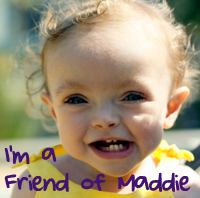It started last week.
Last Friday I got an email asking if I would be interested in participating in an article about the end of the "Cocktail Mom". At first I was a little afraid to put myself out there. I mean, sure, I have the blog, and sure, I openly discuss my recovery I still thought....maybe not?
Why?
Because although many people in recovery will tell you that it’s not a good sign not to able to discuss your recovery freely I’ve found that for me, admitting or discussing that I am in recovery is very difficult. In fact, it’s down right excruciating. Think I’ve overreacting? Try telling someone that you are/were an alcoholic and then look at their face.
This is especially true for women. When I was first sober I looked around for blogs that discussed women and their sobriety yet dealt with it in a family centered fashion allowing me to see that it could be done, that it was being done, and gave me *something* to hold onto that eventually life would become ‘normal’ again (whatever that means).
Thus, the purpose of this blog.
In answering the questions this weekend it dawned on me that I'm not sure how much of myself I've ever shared...it's sort of like I just started so I thought I would take a step back.
But to tell you ‘About Me’ in four easy sentences:
I am a wife.
I am a mom.
I am a professional working in a VERY conservative industry.
And…I am a very grateful recovering alcoholic.
If you think this is an isolated problem the think again. Below are excerpts that show just how deep the problem permeates into society and how drinking changes due to age and time of life:
It is estimated that of the 15.1 million alcohol-abusing or alcohol-dependent individuals in the United States, approximately 4.6 million (nearly one-third) are women (1).
(1) WILLIAMS, G.D.; Grant, B.F.; Harford, T.C.; and Noble, B.A. Population projections using DSM-III criteria: Alcohol abuse and dependence, 1990-2000. Alcohol Health & Research World 13(4):366-370, 1989.
Drinking behavior differs with the age, life role, and marital status of women. In general, a woman’s drinking resembles that of her husband, siblings, or close friends (3). Whereas younger women (aged 18-34) report higher rates of drinking-related problems than do older women (3,4), the incidence of alcohol dependence is greater among middle-aged women (aged 35-49) (5)
(2) WILSNACK, R.W.; Wilsnack, S.C.; and Klassen, A.D., Jr. Women’s drinking and drinking problems: Patterns from a 1981 national survey. American Journal of Public Health 74(11):1231-1238, 1984. (4) HILTON, M.E. Drinking patterns and drinking problems in 1984: Results from a general population survey. Alcoholism: Clinical and Experimental Research 11(2):167-175, 1987. (5) WILLIAMS, G.D.; Stinson, F.S.; Parker, D.A.; Harford; T.C.; and Noble, J. Demographic trends, alcohol abuse and alcoholism, 1985-1995. Alcohol Health & Research World 11(3):80-83, 91, 1987.
I'm not going to bullshit you.
Recovery is hard.
Sometimes it's quite a little bitch.
But to answer why would I do this?
Questioning yourself?
The door is always open.














2 comments:
Just another set of reasons, right there in black & white, why I love having you as a friend so much and why I think so much of you as a writer & as a person in general. <3, @kristeneileen
I'm glad you're recovering and fighting to stay strong. ((HUGS))
Post a Comment